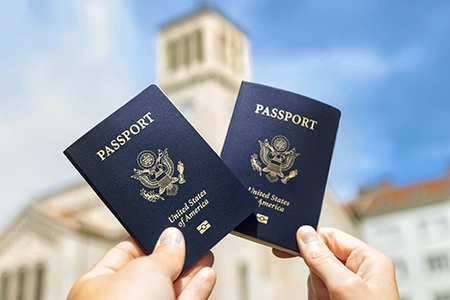Translation is crucial in breaking down language barriers and connecting people from different cultures. It allows for exchanging ideas, traditions, and knowledge, which is especially important in today’s interconnected world. Turkish-English translation is particularly challenging due to the rich history of Turkey and the vast English-speaking world.
Translation helps bring people together across different cultures, allowing important information to reach a global audience. It helps us appreciate different perspectives, fostering empathy and understanding. In a world where we are increasingly connected, the need for accurate Turkish-English translation is more important than ever. It helps build bridges between countries, making it easier to communicate and collaborate on economic, educational, and diplomatic fronts.
This blog post dives into the complexities of Turkish-English translation and its role in connecting people from different cultures. By exploring this topic, we hope to highlight the importance of accurate translation and its role in building bridges across linguistic and cultural boundaries.

Before we begin…
Looking for superior translation services that are fast, precise, and budget-friendly? Look no further! We offer top-notch translation solutions at unbeatable rates. Contact us now to get a quote and let us help you communicate effectively in any language.
The Rich Tapestry of Turkish Language and Culture
Unraveling the Turkish Tapestry
Türkiye is a country that has a rich history and a fascinating culture that both Asia and Europe influence. The Turkish language has evolved over the centuries, and different cultures have greatly influenced it. The Ottoman Empire’s expansion brought about a significant transformation in the language, and it underwent a major change in the 20th century under the Turkish Language Reform. This change made the language more accessible to people and brought it closer to the Western world.
Turkish culture is a beautiful blend of traditions that reflects the country’s unique position at the crossroads of Europe and Asia. It’s a fusion of the East’s mysticism and the West’s practicality, seen in everything from food, music, literature, and art. Turkish culture has made significant contributions globally, with its cuisine being popular worldwide, Turkish cinema and TV dramas receiving international acclaim, and Turkish literature being increasingly recognised and celebrated in the international literary world.
Cultural Nuances in Translation
When we translate between Turkish and English, it’s not just about words. It’s also a journey through cultures. One of the biggest challenges is conveying the cultural context embedded within the language. Turkish has many phrases and sayings deeply connected to cultural practices, historical events or regional references. These phrases may not have a direct equivalent in English, making it difficult to translate them accurately.
For example, the Turkish phrase “Kol kırılır, yen içinde kalır” translates to “The arm is broken, but it stays within the sleeve.” It has a deeper meaning and cultural significance that is lost in translation. Similarly, when translating English phrases into Turkish, we need to understand the Turkish way of life, beliefs and values to convey the message accurately.
Translating between Turkish and English can be challenging due to the different structures and syntaxes of the two languages. Turkish has a complex structure where multiple suffixes are added to a base word to alter its meaning. This complexity can be difficult to convey in English’s relatively fixed word order.
In conclusion, translating between these two rich languages requires both linguistic skills and a deep appreciation and understanding of the cultural nuances that define and differentiate them.
Turkish-English Translation in Different Arenas
In the Business World
Accurate translations between different languages are very important in international business. As companies grow and start working with people from different countries, communicating clearly and avoiding misunderstandings becomes more crucial. Even small mistakes in translation can cause problems, like hurting relationships, causing financial losses, or making it hard to sell products.
One of the biggest challenges in business translation is dealing with a complicated language specific to certain industries. For example, legal, financial, and technical fields all have special words and phrases that can be hard to translate because they don’t have exact equivalents in other languages. This can be especially important in legal documents, which need to be precise to avoid legal problems, or in financial reports and technical manuals, which need to be clear and accurate to be useful.
Literary and Academic Translations
Translating Turkish literature and academic texts into English is important because it helps share ideas and knowledge across different cultures and languages. When Turkish authors and scholars translate their works into English, they can reach a wider audience and help enrich the world’s literary and academic landscapes.
For example, more people can learn about Turkish history, culture, and society by translating the works of famous Turkish writers like Orhan Pamuk and Nazım Hikmet. However, translating literature is not just about changing words from one language to another; it’s also about capturing the author’s style, voice, and cultural essence in the translated text.
Translating academic papers, scientific studies, and historical texts is also important because it helps people in different countries collaborate and share knowledge. To convey the original argument or idea, these translations must be accurate and precise.
Turkish-English translators play an important role in connecting people across different cultures and languages through literary and academic translations.
The Role of Turkish-English Translators
Beyond Word-for-Word Translation
Translating from Turkish to English is not just about replacing words with their equivalents. A good Turkish-English translator must possess many skills, including linguistic proficiency, cultural knowledge, and contextual understanding. It’s not enough to simply have a good grasp of the language. The translator must also understand the subtle nuances of both cultures and how they affect how language is used.
Beyond linguistic skills, the translator must be able to interpret cultural subtleties. This requires recognising and translating humour, idioms, and cultural references that may not have direct translations. For instance, a Turkish proverb may convey cultural beliefs and practices that require careful explanation or adaptation for English-speaking audiences. The translator’s job is to translate, interpret, and bridge cultural nuances, ensuring the message is faithful to the original and accessible to the new audience.
Translators as Cultural Ambassadors
Turkish-English translators play a vital role in promoting cross-cultural communication. They act as cultural ambassadors by building bridges between different cultures in various settings. They work beyond translating written words, often handling spoken language in conferences, meetings, and artistic performances.
For example, in diplomatic relations, translators’ accurate and sensitive language interpretation can significantly affect the outcome of high-level meetings. Misinterpretations or cultural mistakes can have severe diplomatic consequences. Similarly, in literature, translators introduce Turkish literature to new audiences, becoming advocates for the authors they translate. Their translations allow readers to explore Turkish culture and history through literature.
A case in point is the translation of Elif Şafak’s works, a prominent Turkish-British author. Her translators have played a crucial role in bringing her culturally nuanced narratives to an international audience, enhancing understanding and appreciation of Turkish culture worldwide. Through their meticulous translation of her novels, which delve into complex themes of identity, culture, and history, these translators have opened a window into Türkiye’s soul for countless readers.
In conclusion, Turkish-English translators do more than translate words. They facilitate understanding by bridging cultural gaps in an increasingly interconnected yet linguistically diverse world.
The Future of Turkish-English Translation
Technological Advancements and Translation
The field of Turkish-English translation is rapidly evolving, thanks to technological advancements in artificial intelligence (AI) and machine translation. These technologies have revolutionised the speed and accessibility of translation services, providing instant translations of web pages, documents, and even live conversations. AI-driven tools have made translations more accessible to a wider audience, democratising the language translation process.
However, this technological surge comes with the challenge of balancing machine efficiency with the nuanced understanding of human translators. Although AI and machine translation have made significant strides in accuracy, they often need help with cultural nuances, idiomatic expressions, and contextual subtleties. This is particularly evident in translating literature, poetry, or complex business and legal documents, where human translators remain irreplaceable. Therefore, the future of Turkish-English translation lies not in replacing human expertise but in leveraging technology to augment and enhance the human skill of translation.
Emerging Trends and Opportunities
The field of Turkish-English translation is expected to grow significantly in the coming years. This growth will bring both opportunities and challenges for translators. One noteworthy trend is the increasing demand for specialised technology, medicine, and law translation services. These areas require specific knowledge of terminologies and concepts, which makes expertise in these fields crucial. Translators who specialise in these areas can create unique niches for themselves, combining their language skills with other areas of expertise.
Another growth area for Turkish-English translators is the growing global interest in Turkish culture and media. This includes literature, films, and TV series, which are gaining popularity worldwide. This cultural wave is creating a demand for translators who can effectively convey the richness of Turkish art and storytelling to broader audiences. This represents an exciting opportunity for aspiring translators to be part of a cultural bridge, sharing the wealth of Turkish culture with a wider audience.
The future of Turkish-English translation is about overcoming language barriers and fostering deeper intercultural connections. Aspiring translators are encouraged to embrace their linguistic and cultural aspects, continually adapting to the evolving landscape of languages and technologies. With passion, dedication, and a willingness to evolve, the next generation of translators will play a crucial role in shaping a world that is increasingly interconnected yet wonderfully diverse.

Before you go…
Looking for superior translation services that are fast, precise, and budget-friendly? Look no further! We offer top-notch translation solutions at unbeatable rates. Contact us now to get a quote and let us help you communicate effectively in any language.



